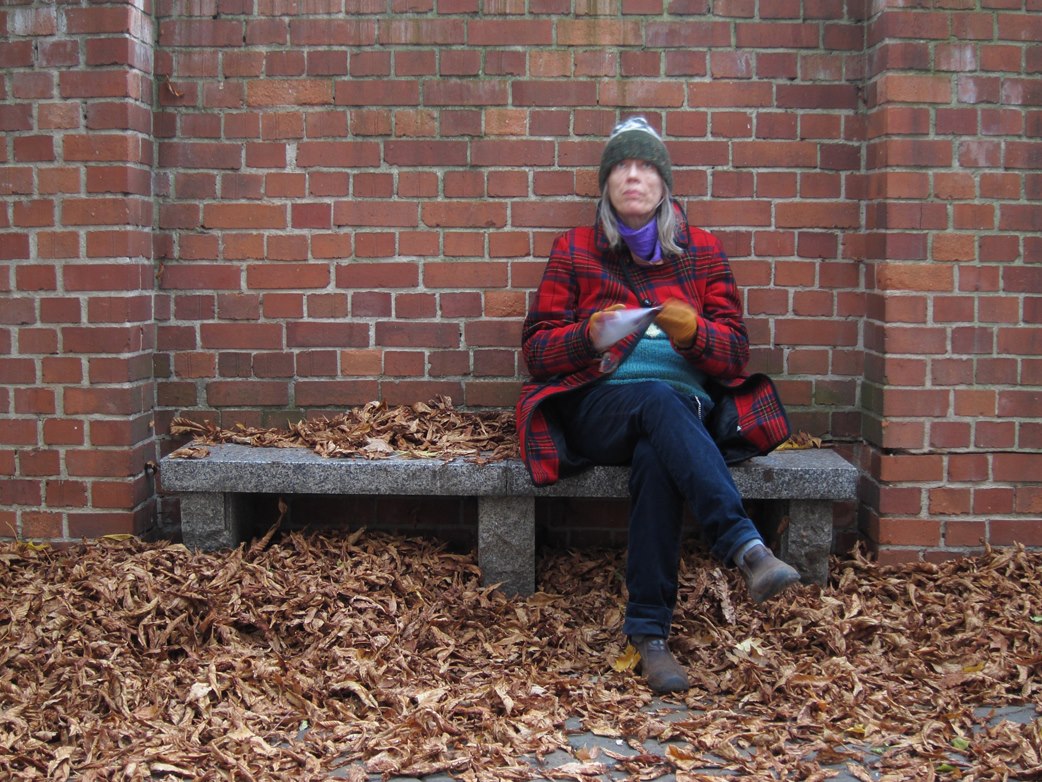[vc_single_image image=”2338″ image_size=”full” frame=”noframe” full_width=”no” lightbox=”yes” link_target=”_self” width=”1/1″ el_position=”first last”] [vc_column_text pb_margin_bottom=”no” pb_border_bottom=”no” width=”1/1″ el_position=”first last”]
“This is my first published novel that happens in a certain time and place”
[/vc_column_text] [vc_column_text pb_margin_bottom=”yes” pb_border_bottom=”no” width=”1/1″ el_position=”first last”]
[hr][one_half]
[dropcap4]K[/dropcap4]ristín Ómarsdóttir has been praised for a vast imagination and beautiful style in her novels, short stories, plays and poems. Her new novel Milla was nominated for this year’s Icelandic Literary Prize. It centers around Milla, a young lesbian of Asian descent who is hired to register data on the typical Icelandic family at the end of the twentieth century. Meanwhile Milla longs for an ordinary life but has a hard coming in terms with herself. We met up with Kristín to find out more.
Your stories are often considered different, provocative and even alarming. What can we expect from your new novel?
This is my first published novel that happens in a certain time and place while dates and places have been vague in my other novels. It can be considered realistic, even social realistic, which is an art movement I rebelled against when I began to write, especially in my teens, but that’s nothing to write or discuss further. However all my novels are realistic and are not even remotely related to fantasies in my mind. So while you can locate this novel on an old-fashioned geographical map the other ones can also be found on maps most of us are familiar with, but haven’t been published by any institute. Not yet.
The main character, Milla, who is gay, gets the task of registering data on the typical Icelandic family. Is that some sort of criticism of society’s tendency to stereotype people?
Well if there is any sort of criticism in the book, as you put it, I shouldn’t be admitting it to you, but rather keep it: a secret. I’m not one of those authors trying to convey a message, at least it’s not in any given way, but on the other hand the story is in a way a girl’s chronicle from the year 2001.
Do you ever feel like you have been branded for writing about unconventional matters?
Firstly I think my subjects are far from unconventional. I’m a very conventional writer and fiction is an old art form, maybe something that belongs to the past, and must be, because that’s were you come across all the stories. Secondly I can’t look at myself from the outside, I don’t have the equipment to do that. To tell you the truth I don’t care for branding, I couldn’t care less about somebody doing that to me, I wouldn’t even notice it. Is someone really doing that?
Do Icelanders have a stronger tendency than others to put people in boxes?
No, Icelanders aren’t any different from Russians, Canadians, Gypsies, Romans, Africans, Norwegians or Indians. They don’t stand out or behave any differently than others.
[/one_half][one_half_last]
But why do you think humans have a tendency to do that?
What, to brand people or to put them in boxes? Well if you look at a farmer he orders animals into barns and sties and divides gardens into flower beds and cabbage gardens. Isn’t that a human urge that comes out of a practical necessity? At least I hope the reason is practical. Sometimes this practicality blends together with hatred and wickedness and the need to restrict other people’s freedom and to take freedom at the expense of others, probably because those in charge don’t know how to be free without vandalism and steeping on other people’s hands.
Back to the book. How did you come up with the idea behind it?
I was working with Reykjavík city as a setting for a story – setting is such a respectable word – but I abandoned the story I had been writing, gave up on it, didn‘t connect with the characters, and in it‘s place Milla showed up, unexpected like a uninvited guest in a party I wasn‘t even going to host.
Was it long before you put the idea down on a piece of paper?
No, I wrote the script instantly, numerous scripts followed, then there was a long break where they were kept in boxes. But I hadn’t forgotten about the story and always meant to work on it and bring it to the public.
Was it easy or difficult giving birth to the book?
I don’t compare writing to conception, pregnancy or birth. It’s a completely different process, there’s no morning sickness, no gained weight, you can sleep in the night, you don’t get swollen, have to breastfeed anybody, change diapers or make the novel belch over your shoulder. Of course novels grow in your hands but also tend to shrink, get reduced or rounded out. Maybe you can compare writing to weaving – which has been done often. The writing process of this story worked out very well and I really enjoyed it.
Your book has been both a critical and a commercial success. Why do you think that is has such a broad appeal?
I actually don’t know. I’m not very good in sensing things like that. Of course I am a part of the public and get fascinated by the times we live in, to a varying degree, just like everyone else I guess.
Finally, what’s up next?
Hmmm … writing poetry and stories, logging onto Facebook and things like that.
[/one_half_last][hr]
Some of Kristín’s work can be found in English and other languages on Amazon:
- Children in Reindeer Woods.
- The Importance of Being Iceland: Travel Essays in Art.
- New European Poets.
[/vc_column_text]


